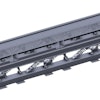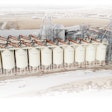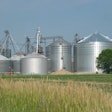Steven Kilger, managing the editor for Feed & Grain Magazine and host of theFeed & Grain Podcast, talks with Charlie Delacruz, theNational Grain and Feed Association(NGFA)'s senior vice president, general counsel and secretary, about how theorganization's arbitration systemworks and the value it offers its members and the industry at large.
Transcript
Steven Kilger(00:00):
Hello, everyone! You're listening to the Feed & Grain Podcast. I'm Steven Kilger, your host and the managing editor for Feed & Grain. My guest today is Charles Delacruz, NGFA's senior vice president, general counsel and secretary. We're talking about NGFA's arbitration system, the nation's oldest arbitration program, we're going to give you guys a little insight on how the whole thing works and what's involved in the process.
Kilger(00:26):
Before we start, there are a few points where Charlie's audio has some interference, but that goes away quickly. And as always, if you have a topic or guest you want on the podcast, go to feedandgreen.com/podcast, click the Contact button, and let me know. With that out of the way, thank you so much for listening. And welcome, Charlie.
Charles Delacruz(00:52):
Hello, Steve.
Kilger(00:54):
Hey, Charlie, how are you doing today?
Delacruz(00:56):
I'm not bad. How about yourself?
Kilger(00:58):
Why don't you tell me and our listeners a little bit about yourself and your history with NGFA and working with NGFA's arbitration program?
Delacruz(01:08):
好吧,好吧。对我这是很容易. I'm a native Virginian, married with four kids and an attorney by trade. I practiced law for about 10 years or so, mostly with a big law firm out here on the East Coast, before coming in NGFA. And I've been with NGFA. Now, I think just wrapped up 20 years, like most of these, like most of us here on staff, you know, wearing a lot of different hats. One of those hats has been consecutively for the last 20 years, having primary administrative responsibility for the NGFA arbitration system.
Kilger(01:55):
Tell me a little bit about that and NGFA's arbitration program. I've done my research on your site, and you guys do claim that it is the oldest system in the US.
Delacruz(02:06):
Yeah, no, it is. We do believe it to be the oldest private commercial arbitration system in the country. I don't know who originally came up with that. But I've never been corrected. When we do make that known, the history and NGFA arbitration are actually pretty interesting. It goes back to the start of NGFA itself. I think that was back in November 1896. When something like the 38-grain dealers got together in Chicago to form, to form the national organization, and really high on their goals was establishing a procedure for the settling of trade disputes. They formed then the Grain Dealers National Association, which was NGFA's original name. And even back then, the original Constitution in the bylaws provided for this arbitration system. The system itself became official in October 1901, with arbitration rules formally adopted, and like you said, we do believe it to be the oldest arbitration system in the country. And I guess here we are, 120-plus years still going.
Kilger(03:18):
I should go back a step. For people who aren't aware, what is an arbitration system?
Delacruz(03:25):
仲裁,这是一个替代纠纷resolution method. There are others. And by that, I mean an alternative to going to court, the traditional litigation route that most folks are familiar with, even if you haven't been sued or had to sue anyone. We've all seen what court proceedings look like on television. There are alternatives to that. There's mediation, there are a lot of different forms of arbitration. And they all, you know, they can look different, they can take different approaches. I think it's fair to say that arbitration is a little different than mediation, and some of the others, in that it's designed to completely replace the court-type proceeding. What you should end up with, in the end, is something, you know, the equivalent of and just as enforceable as what would be a decision in court. And usually, folks get to arbitration because, well, they belong to an association like ours, whereby maybe the members themselves commit to arbitration disputes before, you know, an arbitration forum. Or there is consent between the parties for arbitration. Usually, they agree to arbitrate a dispute after it comes up. More than likely, there is an arbitration clause in the contracts that they sign that provides for any disputes that arise to be settled before an arbitration forum instead of going to court.
Kilger(05:16):
In the NGFA, it's part of your bylaws, right? If members have disputes with each other, that they go through this arbitration process.
Delacruz(05:24):
That's absolutely correct. And that's the first form of arbitration I was referring to, it's compulsory for NGFA active members to arbitrate any disputes between themselves. And that's a pretty broad range of types of disputes that we're talking about. Literally, it's anything involving warehousing, processing, manufacturing, merchandising, financing, transportation, and distribution of grain or feed. If the dispute involves anything in that area, it's compulsory when between members that they take it to enter your favor arbitration,
Kilger(06:06):
Usually, so member organizations are usually the ones bringing those to you guys. Right?
Delacruz(06:11):
Well, I'm glad you asked because I should clarify, there's the other form of arbitration that we were just talking generally referred to. And that's arbitration by consent, which usually comes out of an arbitration clause in the contract signed between the parties in that situation. Non-members and members are treated similarly, actually equally. And so, in that situation, it's not required that both parties be members. It is required for us to have legal jurisdiction that at least one of the two parties could be multiple parties, but at least one party be a member, or else we just don't have legal jurisdiction that the case can involve non-members as well. And usually, that gets to us by way of an arbitration clause in the contract. And in those situations, it's not necessary that the party bringing the case be the member. It can be a member, it can be a non-member. Once the process started, it doesn't matter whether the party is a member or not. We just need there to be at least one member involved in the case.
Kilger(07:21):
和整个仲裁背后的目标,从我understand at least, is that it's supposed to be a little faster and probably a heck of a lot cheaper than going through the US court system. Right?
Delacruz(07:32):
Yeah, I would certainly say on the cheaper end, attorneys are not required in our process. I mean, I don't know to what extent they're ever fully required in court or in arbitration. But it really is that the NGFA process is designed to be simple enough and streamlined enough. And the folks, the decision makers, ultimately hearing the case, are not attorneys. They're not judges, they're people with experience in these types of disputes. You know, the process is simple. So I guess what I'm getting at is that I think it's fair to say attorneys aren't essential in our process, which is a cost savings. When attorneys are used, I think the process, again, being simpler, folks can be more efficient with the attorney time.
Delacruz(08:30):
And I know I'm jumping around a lot here. Our arbitrators are volunteers, which means significant cost savings in our arbitration forums. Some arbitrators are paid professionals. And that can be expensive, to be honest with you. But our arbitrators are volunteers. So there's no additional cost for their time. There is a filing fee for each case. And I can get a lot more detailed on that. I think it's fair to say it's rather modest. And there really are no additional fees or expenses. Unless a party requests an oral hearing, like an in-person hearing, or files an appeal. So with a lot of other arbitration forums, you pay a fee when you file and then pay fees at a number of other steps. I think in the end, NGFA arbitration ends at pretty cost-effective compared to the alternatives.
Kilger(09:35):
That's kind of part of the advantage of you guys doing it for so long. Right? You have the system down. It was hopefully made in a somewhat less cynical time in America.
Delacruz(09:46):
Well, yeah, I guess. I guess it was volatile for them back in the 1890s. But certainly not compared to what we face now.
Kilger(09:55):
是的,当然。所以说啊,f your arbiters, who volunteers for this? Who do you guys pull from to review these cases?
Delacruz(10:02):
Well, you know, I'll tell you that's a good question too, because I don't know that they volunteer and that we always have to go find them. They're volunteers in terms that there's no compensation, no money involved whatsoever for them. The arbitrators really are my favorite part of the process to talk about, coming from a litigation background. I come from more of a traditional dispute resolution forum background. So this is, I think, what is extra fun and extra special about edge NGFA. Each case is assigned to a panel of three arbitrators, no matter how big or small the case is. The criticism that, you know, paid arbitrators can benefit from repeat business. So they may favor one side or the other. That's not a concern for us.
Delacruz(10:50):
Probably my, you know, when I said the arbitrators is my favorite part to talk about, maybe my favorite part to talk about within that area is the type of experience and expertise that these folks have, per the NGFA rules. NGFA arbitrators are prominent, and they are experienced in the specific type of trade or transaction involved in the case. So they really are subject matter experts. You're not arguing your case to a jury, who by design would have little or no experience in the issues involved. I did a lot of jury trials back in the day. And you're not arguing your case to, you know, retired judges or lawyers or, you know, legal experts, who one might find in a lot of other arbitration forums. You're taking your case to true subject matter experts. I should also say, while talking about them, that they are assigned and recruited volunteers, by NGFA, specifically by the NGFA Secretary, that's me. We are purely a third-party administrator. Neither they nor we have any interest in the dispute whatsoever. And we really do take a lot of great care in screening our arbitrators for any bias during the selection process. As I said, there are volunteers, so they're not looking for this these assignments in the first place. But we still take a lot of effort. In the screening process, the parties have an opportunity to challenge any of the arbitrators that are appointed. But parties don't themselves select the arbitrators.
Kilger(12:49):
That's some of the criticism you get with other arbitration is you have these judges that are being paid by someone and usually a lot of contracts nowadays between these David and Goliath situations. So it seems like it'd be really nice to be part of a system like this is arbitration working itself. Your judges are at least somewhat your peers, and it's fair and balanced for everyone involved.
Delacruz(13:16):
Yep, no, I agree.
Kilger(13:17):
So can you tell me a little bit more about what kind of happens during an arbitration case? What are the steps that are involved?
Delacruz(13:25):
这个过程是相当简单的,原告like in court, files a complaint, and we then get the parties to commit to the process. Each side files two arguments. So I mean, written arguments, and it's really expected they fully present their case in those arguments. It's up to the parties to know what to say, how to say it, and how to present it is entirely up to them. We do guide the parties through the process. So, you know, we make that simpler for them. I think previous experience with arbitration procedures is not really necessary or even relevant here. Once the exchange of arguments is completed. We appoint the arbitrators, as mentioned a moment ago, and the arbitrators get the case. If an oral hearing is requested, then that happens. If it's not, then the arbitrators will debate, deliberate and decide, usually by telephone by exchanging materials and so forth, not usually in person because they tend to come from different parts of the country, which is something else we do to avoid to make the process fairer to avoid even the potential for bias at all after they're done with their deliberations, and they decide the case, detail decisions, all of the decisions are posted and publicly available on the NGFA website. We like that kind of transparency because it allows for complete scrutiny of the whole process by the public by anyone. The parties are; also, I should mention, able to appeal their decision to the appeals committee within the structure NGFA arbitration system.
Kilger(15:45):
Once again, it sounds like a really good system I'm kind of blown away. Arbitration, especially recently, it's kind of gotten a bad rap. But it sounds like your system is great. And it sounds like a really big benefit to as part of being an NGFA member, right? You basically get this access to this really fair, relatively inexpensive system.
Delacruz(16:07):
Yeah, no, I agree with you. Like I said, it was I think it was one of the reasons the association was formed way back in 1896, I guess it was. And I do believe it continues to be one of the main reasons why the association is here, and its members and non-members alike. It really just is a great way for grain and feed-related disputes to get resolved in a workable, friendlier, maybe, format? By folks that are subject matter experts.
Kilger(16:47):
Well, yeah, friendly is a good word for it. Because I was, I was thinking that, you know, it'd be a pretty friendly industry. Even amongst your competitors, you always hear stories about people helping each other out and doing all these things. And it seems really nice, that kind of industry that I think of is so friendly, has what seems like a slightly friendlier way to resolve disputes, and going through the court system. So how long does a case typically take?
Delacruz(17:16):
I get that question a lot. It is hard to pinpoint, you know because each case is so different. And there are so many different factors. You know, how long does it take the parties? How long do they take in committee to the process getting it started? How long do they take submitting arguments? We have timelines, but you know, they're entitled to extensions. And they're always stays and continuances if the parties want to proceed with settlement or discovery, and then I'll be honest, that it becomes how long the arbitrators take to deliberate over the case, which will vary case by case. And our arbitrators are, they're pretty diligent, and they're pretty thorough, there's a lot of work that goes into deciding those cases. Other factors might be whether there is an oral hearing that I mentioned. You know, just scheduling those for everyone's schedules can be a challenge. And then, of course, if there's an appeal, just like in other forums or like in court, that's going to significantly impact the timeline. Just to give you some answer, let's say, with no extensions, no real delays and a quick turnaround between the parties, probably about a year, and it might be two years on the opposite end.
Kilger(18:38):
Okay, that sounds like a long time to people. But when you think about it in the context of how long court proceedings usually take, it doesn't sound too bad, does it?
Delacruz(18:47):
You're right; folks that had been through court and other arbitration forums are the ones that make us feel a little bit better about how long we take. We do try to speed it up. I still think we're faster than most of the alternatives. Maybe we're not as quick as we'd like to be.
Kilger(19:12):
Well, you know, you don't want it to get too quick, right? It's important stuff that's happening. People need their time. You don't want it to be a weekend decision or anything like that.
Delacruz(19:24):
Well, I don't think we could do that. Anyway. But yeah.
Kilger(19:29):
So last question here is how many arbitration cases get brought up to the NGFA every year?
Delacruz(19:36):
I'll tell you that's, that's a good and timely question. It varies a lot. Last year, we had 91 cases filed, about $52 million in claims. This year. We already have 113 cases filed. We're looking at about $69.2 million in claims. But this is a historic time for us. What we're dealing with right now, the numbers we're seeing, we've not seen anything like this since our previous record high back in 2008-2009. And anyone who was back in the industry then knows how volatile things were then, and can understand why I'm referring back to that timeframe as the previous record high. You know, for most years since, oh, 08-09, you know, we've been dealing with a caseload of maybe a third or a half of what we dealt with that and what we're dealing with now.
Kilger(20:41):
Something about market volatility brings up the cases.
Delacruz(20:46):
Yeah, that's, that's always been the biggest factor. I'd be guessing as to what other factors might be affecting the current situation. But there's a lot of volatility out there. There are wars going on and weather conditions and pandemics. And who knows what's down the pipe?
Kilger(21:13):
Inflation, all those things. Oh, it's all chaos out there. Sounds like you guys are doing great work. Thanks for explaining it a little more to me. Is there anything you feel I missed that you really want the word out on when it comes to arbitration?
Delacruz(21:28):
Oh, boy. Well, I could talk about arbitration, I guess for hours in my sleep. Your questions were spot on. If I missed anything, feel free to give me a holler. You know, talking about NGFA arbitration is what we do here.
Kilger(21:48):
I gotta keep these to a certain limit. But next time, I'm at an NGFA event. Hopefully, we get together and chat a little bit. The process interested me a lot. Which is what this podcast is, is me finding these topics that I don't know a lot about. I'm guessing a decent amount of the industry doesn't know about so kind of explaining those and getting those down. So thank you again so much for talking with me.
Delacruz(22:12):
Hey, thank you, Steven.
Kilger(22:14):
All right, and I will be in touch soon. You have a great, great day.
Delacruz(22:18):
Thanks, you too.

.jpg?auto=format%2Ccompress&crop=faces&fit=crop&h=48&q=70&w=48)


















